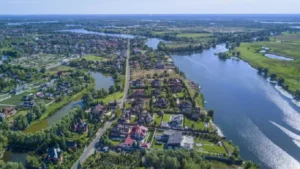A Deep Dive into Public Records, Ethics, and Community Impact
The Kankakee Mugshots Zone refers to online platforms that publish arrest mugshots and booking details from Kankakee County, Illinois. These websites serve a dual purpose: informing the public about local crime and acting as a transparency tool. However, while these platforms offer real-time crime data access, they also raise important legal, ethical, and privacy questions.
In this article, we’ll explore what the Kankakee Mugshots Zone is, how it operates, its benefits, controversies, and what the future may hold for mugshot publications.
What Is the Kankakee Mugshots Zone?
The Kankakee Mugshots Zone is a digital archive that showcases recent arrests in Kankakee County. It typically includes:
-
The arrestee’s full name
-
Booking photo (mugshot)
-
Arrest date and time
-
Charges filed
-
Law enforcement agency involved
These websites collect data from public law enforcement records and post it in a centralized, searchable format. Some are official government sites, while private individuals or media groups run others.
Why Do Mugshots Go Public?
Under the Freedom of Information Act (FOIA), mugshots and arrest records are considered public information in most U.S. states, including Illinois. The intent is transparency — citizens have the right to know who is being arrested in their community.
However, just because information is public doesn’t mean it should be published without context or ethical oversight. And that’s where things get complicated.
Legal and Ethical Concerns
1. Presumption of Innocence
One of the biggest criticisms of mugshot publication is that individuals are presumed innocent until proven guilty. But when someone’s mugshot appears online, it can lead to public shaming before a court decision is even made.
2. Reputation Damage
Even if charges are dropped or someone is found not guilty, their mugshot might remain online for months or years, causing long-term damage to:
-
Job opportunities
-
Housing applications
-
Personal relationships
Many people have reported being rejected from jobs simply because their mugshot appeared in a Google search.
3. Mugshot Removal Fees
Some private sites that host mugshots charge hundreds of dollars to remove them, sparking legal and ethical backlash. This has led to lawsuits and even the enactment of new laws in some states, banning the practice.
Benefits of Mugshot Publications
Despite the controversies, mugshot zones like the one in Kankakee do have legitimate purposes:
1. Public Awareness
People want to know what’s happening in their community, especially related to crime. Mugshot databases:
-
Alert neighborhoods to potential threats
-
Keep law enforcement transparent
-
Encourage community safety and vigilance
2. Law Enforcement Transparency
Mugshot publishing also acts as a check-and-balance system. It allows the public and media to hold police departments accountable by tracking who is arrested, for what reasons, and how often.
Impact on the Community
Positive Impacts:
-
Informed citizens can take better precautions.
-
It promotes community engagement with law enforcement.
-
Helps in crime deterrence — knowing that arrest records are public might discourage illegal behavior.
Negative Impacts:
-
Mental health consequences for those featured
-
Social stigma and alienation
-
Disproportionate targeting of specific demographics
-
Can be misused by employers or landlords
How to Handle a Mugshot Online
If your mugshot appears online and you believe it’s causing undue harm, here’s what you can do:
-
Request removal (some sites offer free removal upon case dismissal)
-
Hire an attorney if the image is misused
-
Contact Google to request de-indexing under certain privacy guidelines
-
Use online reputation management services
The Future of Mugshot Zones
As digital privacy becomes a global concern, many states — and even some counties in Illinois — are rethinking mugshot publication policies. Possible changes may include:
-
Mugshots only become public after a conviction
-
Automatic removal of mugshots once charges are dropped
-
Fines or regulations on mugshot websites that charge for removal
Kankakee County may soon see more regulations or alternatives that balance transparency with individual rights.
Conclusion
The Kankakee Mugshots Zone represents a modern intersection of public information and digital ethics. While it serves as a vital public tool for awareness and safety, it also raises serious concerns regarding privacy, reputation, and misuse of information.
As laws evolve and community perspectives shift, it’s crucial for both the public and website operators to find a responsible middle ground — one that respects legal rights without compromising personal dignity.
Find out more: Tech Besto





